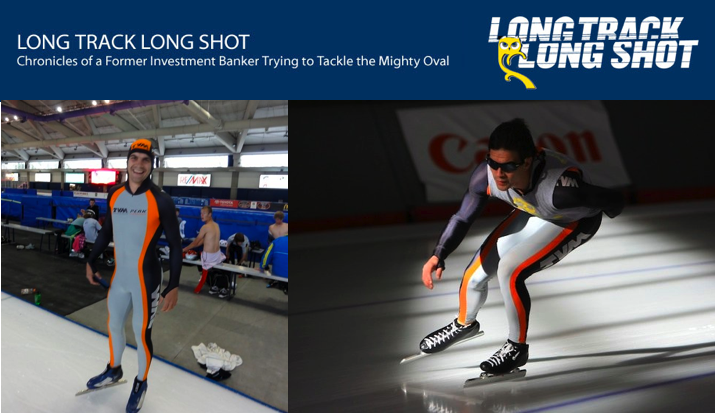
The world of online marketing and social media has opened up new opportunities for amateur athlete sponsorship. In this interview, Trevor Turnbull (COO – Sports Networker) interviews Kevin Jagger (Former investment banker turned long track speed skater – http://longtracklongshot.com).
Kevin discusses how he went from a suit and tie to a one-piece speed skating suit in his pursuit of the Olympic dream. He explains the importance of personal branding and how he works with his sponsors to provide unique, targeted amateur athlete sponsorship opportunities that keep them wanting more.
Check out the video interview below and connect with Kevin online:
Website: http://longtracklongshot.com
Facebook Fan Page: http://www.facebook.com/longtracklongshot
Twitter: http://twitter.com/kevinjagger
Kevin Jagger Interview – Amateur Athlete Sponsorship
What did you think of the interview with Kevin Jagger? Do you feel that amateur athletes should have to secure their own sponsorship in order to be able to cover living expenses and pursue their Olympic dreams? Please leave a comment with your thoughts below and share this with your friends on Twitter and Facebook.
Amateur Athlete Sponsorship – Interview Transcript
Trevor
Hey everyone it’s Trevor Turnbull here from Sports Networker and I’m pleased to be joined here by Kevin Jagger. How’s it going Kevin?
Kevin
Going very well. Thanks so much for having me on.
Trevor
Yeah, no problem and Kevin tell everyone where you’re sitting right now.
Kevin
I’m in Eau Claire Market in Calgary; I’m sitting across the floor because my cord wasn’t working the way it previous was.
Trevor
So we needed to find a plug-in so we got Kevin to the closest plug-in for his computer before it died on him.
Kevin
All good now.
Trevor
Thats the best part about these interviews though you can do them from anywhere.
Kevin
Yeah, absolutely.
Trevor
So for those of you who don’t know who Kevin is you may not have heard of him before but you’ll definitely have heard of him going forward. He’s a guy who did something pretty amazing. I’ll let him tell his story but he basically is a guy who came from the corporate world; he was an athlete and went from the corporate world straight into skate in the Olympics in long track speed skating and with Kevin I’ll let you tell your story a little bit going back to the days when you were playing football in McGill University.
Kevin
So I grew up in Vancouver played football at Vancouver College went to McGill played some football there and then basically decided that I was not gonna be a football star and I wanted to focus on my school. I got my finance degree at McGill and went and worked for Citi in Toronto doing investment banking and eventually went into working for an investment banking and media company. When I was watching the Olympics with my family I had a lot of close family members tied in with Vanock and there was a lot of pressure and buildup for many years with how great these games were gonna be and I think just watching it and getting caught up in Canadians being what I thought was kind of un-Canadian with the whole “own the podium” thing and just saying “were gonna commit the time, were gonna commit the money and were gonna do well. It’s gonna happen.” Seeing it happen it’s just kind of the idea if you go out there with a bold plan, commit the resources to it both human capital and financial capital you can make great things happen. I kind of looked at it as a 25-year-old at the time saying I can’t believe that I’m done and never gonna do a top level sport again. So I wish I had a better story but I literally went into Wikipedia and printed off a Winter sport list and said no team sports because I figured it was too hard to get into that, nothing that was judged, didn’t have the money for skiing, didn’t have any experience with any of the sledding sports, and I played hockey as a kid so I thought maybe speed skating. So I went with speed skating.
Trevor
So when you say that there was all this money pumped into helping all these athletes excel at the 2010 Olympics in Vancouver how did you find it when you decided to dive into long track speed skating. Was the funding there? Were you able to get into a financial program where you had no worries? Give us a picture of what that was like.
Kevin
Oh absolutely not, there was no funding for me and I think it would be a huge shame and you as a tax payer would be very frustrated if I was receiving funding. I’m not who this money is dedicated to, it’s not for people starting late in the game. The funds should be directed at 16, 17,18, 19-year-old kids that have proven their potential. For me, I was gonna be operating outside the system which is totally fine. I find that there is adequate funding, and speed skating is a well-funded sport, where the athletes are not starving. They’re getting world-class facilities, world-class coaches. It’s that extra little bit; speed skating is a sport where you’re there for 10, 15, 16 years; and its Speed Skating Canada’s job to maybe get skates on your feet, get you to competitions, provide the old adage of shelter over your head and clothes on your back and they do a fantastic job of that. I think it’s a lot on the athletes to make a living out of it. Athletes complain that they come out of it in this massive debt, but if you ask them what they’ve done specifically to improve their own financial situation I think you’ll see there’s obviously varying answers there and the ones who have gone out and pounded the pavement have done well.
Trevor
Do you mean in the sense of actually going out and securing their own sponsorships as an athlete?
Kevin
Securing additional personal sponsorships. Like I said Speed Skating Canada is well funded but I’m not in the situation where I’m not funded or a part of Speed Skating Canada
Trevor
So you’re currently not a part of Speed Skating Canada? Or not under the same funding program.
Kevin
I’m not sure where the umbrella of Speed Skating Canada starts and stops. I term it the National Team, so any carded athlete. I’m part of the Oval program. I’m not sure where it’s relationship is with Speed Skating Canada. Obviously Speed Skating Canada has some sort of oversight. But when I say Speed Skating Canada I mean our Olympians, the names you’ve heard of, the speed skaters you’ve heard of, our carded athletes. Like I said it’s a well funded sport compared to other Winter sports, and some of our speed skaters have done very well in securing speed skating sponsorships but others have struggled.
Trevor
So this is where your story gets to be quite interesting and obviously an inspiration and the reason why I wanted to interview you on this is because you’re kind of paving a path here whether you like to believe it or not you are paving a path in finding how amateur athletes can go about securing a sponsorship and tying in new technology to add value to those potential sponsors. You left a job that was obviously paying you quite well and you could’ve kept going on that career path. But when you decided to be an athlete and aspire to these Olympic dreams, what was going through your head as far as how can I get some awareness, get some people rallying behind me, secure the funds needed for you to just pick up and go and start training in the facilities in Calgary.
Kevin
I guess the number one thing is that I knew that I would have a unique story and something that some people would be interested in following. And with that following, just understanding how online content works, there’s a value associated with it. So if I could produce content, and obviously I would do exclusive content which is run through my blog, and there’s a following attached to it I now have an asset. I can’t go to a sponsor and say “I am X ranked speed skater” because that’s not going to impress anybody whatever my ranking is. Instead I go with a story that no longer compares me to anybody else. They have to look at me and decide “Yes that’s something we want to sponsor” and theres no way to be like, “OK, hold on, we’ve heard your story. Let’s get 9 other speed skaters in here and we’ll compare the stories.” By sharing my story I’ve eliminated that and I’ve made it, “would you like to be a part of my story.” I think that’s what other athletes can do. If you’re just results, and that’s your pitch, you better be the best in the world because if you say, “I’m the 7th best in Canada,” and you’re the sponsor you’ll say “well OK show me the other 6 guys. I wanna talk to the other guys.” Where as if you come in with I’m a former hockey player, had a lot of injuries, I transferred to speed skating, I’m from X home town, you’ve now crafted your story in a way where they’re like, “OK, were now talking to you, were now basing our decision on if you’re something we wanna be aligned with.”
Trevor
Right, so its almost less about sponsoring and affiliating themselves with you as an athlete and more around you as an individual who happens to be an athlete thats trying to excel in this sport right?
Kevin
I’m on the extreme case. I lean further on the story side than athletes probably need to. It’s more of an example. You can understand that I can generate value without results. Nothing to be taken away from being the 7th ranked speed skater in Canada, which is a phenomenal ranking, but it can’t just be it. The same way I can’t get away with no results; I need results to back up the story. I’m saying if you rely wholly on results you better be number one. If you’re not number one you need to add a little flavor and make it kind of a no-brainer for a sponsor. Figure out what their goals are in a sponsorship, hit them with what things you bring to the table that are different, and thats kind of it. And again, my situation is a little bit unique, I don’t think people should just be focusing just on their story, you need to focus on being a speed skater or an athlete.
Trevor
So can you give us an example of some of the creative ways that you’ve been using your Website and these social tools to provide value to sponsors and essentially go out and give your pitch and offer them something in return?
Kevin
For sure. One of the things that I think is great about amateur athletics is sponsors are not a ridiculous, far-flung element of your training. If you ask any amateur athlete and they sit down for a beer with someone, probably by the 3rd or 4th question they ask, “how do you pay for this? how are you funded?” It’s a great way for a sponsor to organically become a true part of your story. Everyone remembers Rick Hanson, he had Nike and McDonalds, you always remember it. That journey couldn’t have happened without that and they kind of infused themselves into that story. You dont need to be on a path of that magnitude to have the same effects. And so I think what athletes can offer, it’s organic , it’s very much a part of your story. For a lot of sponsors it’s a local, kind of grass roots engagement where I think my sponsors look for a number of things. One, I think they generally wanna help. I’m very fortunate to have a great group of supports that are fans first. Two, they’re all around my community so when I host events or have a going away party or have a year-end fundraiser I’m always able to include their services or have them support me by buying t-shirts. I’ve sold about 500 t-shirts, all in the Vancouver Area pretty much, that all have my sponsors on it. So people are going to the gym in the t-shirt of my sponsors in the area that my sponsor operates. I’ve sent out a ton of thank you cards, a simple thing, its a little postcard. Again I’ve sent about 800. They all have my sponsor’s logo on it and they’re going to those key demographics. It’s not totally unrelated. So it’s just kind of that grassroots local engagement and like I said it’s a key part of my story so it’s very easy for me to continually bring up my sponsors.
Trevor
Well I know we talked about this just few minutes before we got onto this interview. The idea of working with clients without having the goal of getting them 100,000 likes on a fanpage. It’s not about the volume, it’s more about the quality of types of people you have interacting with your brand and I think that’s what you’re speaking to on the sponsorship side of things. You’re in the community, these people are sponsoring you genuinely because they wanna see you succeed but also because you align with them in more than just trying to give them the maximum exposure right?
Kevin
Exactly, and thats what I think is key for athletes. If I went out, I probably would have gotten their funding once as what I basically call a donation. But I mean if you’re an athlete you’re committed to a multi-year thing and a donation is not a sustainable model. You need to be adding value. And if you’re adding value, even if you can make that donation as a carving more into the marketing side of things and the marketing budget, you have a much better chance of renewing that sponsorship the next year and that allows you to commit to your goal. If every year I’m like, “I don’t know if I’m gonna have my money next year” how do you train? How do you wake up and go train hard. It’s like you’re going to work thinking you’re gonna get fired the next day. Your mind’s racing. Where as having these little things, and I mean little kind of contests through social media. One of my sponsors is the Mac Shack and we have a plan of doing a blog post and trying the meal out; that’s a little thing and it doesn’t have to have a million views on YouTube to be impactful in the key demographic. The Mac Shack is four blocks from my old high school. A lot of the followers of my blog are Vancouver College alumni. It’s not very hard to tie that all in and have a very strong kind of ROI on the sponsorship. But we’re not talking big dollars and we’re not talking big views.
Trevor
So you referenced the fact of trying to work these deals too where, for example, you’ve got three years of training left for the Olympics right? Two and a half years of training essentially.
Kevin
Yeah, Two and a half.
Trevor
Were you able to, in your agreements with sponsors, able to secure some of those sponsors throughout the duration of this training then? Or how do you structure those?
Kevin
The majority of my sponsors are committed to the end. So we set up annual goals each year and the idea is that I’m basically trying to buy myself more time by hitting my goals. We achieved last year’s goals. I held a sponsor reception, which was a small night out basically with my sponsors and just kind of away from the blog and away from me sending things out to the readers and followers. It was able to speak to a group of about 18 people and just say, “you know this is exactly what I’m thinking, this is where my head’s at, this is what I’m feeling coming out of this first season.” And the goal of that night was to basically get a feel for how people are feeling about the future and then basically I was able to renew the majority of those sponsors, actually all of those sponsors, that night. So they’re committed, they’re long term. They’re all fantastic people that, like I said, are sports fans first and by me working to recognize their sponsorship I think it’s just making it easier and easier for them to say yes each year.
Trevor
So when you say meeting your goals are you referring to your training goals? Or are you referring to actual performance goals of traffic on your Website.
Kevin
No, no that’s all cherry on the sundae. The speed skating specific goals. That was a big thing to kind of communicate to people here in Calgary too, that I’m not doing this as a side project. To be honest the blog originally started as a way for my coach and I to be able to share video; we couldn’t send email videos back and forth. So I would put up a video clip and write a description and then I was like, “you know what? My parents are probably wondering what I’m doing,” because I quit my job to do speed skating and it took four months after I quit my job to put on speed skates. So I knew there was a lot of close people wondering maybe if I lost my mind. So I wanted to share it with my immediate friends and family and they started commenting and sharing it and then it kind of grew from there. Now it’s been in over 108 countries. The blog is, my line on it is, when I was 12 months into this journey I could not have done it without the blog. If I did not have the blog I would have been dead in the water I think.
Trevor
Well it’s an awesome story and you’ve actually spun this off into a business as well right? You mention that you train in the morning to work around these young guys and gals that you’re skating with and then run a business, not work a job, you’re actually running your own business during the day is that right?
Kevin
Yeah, that’s correct. So that’s where I’m meeting with a lot of athletes now. On my side of things, my goal for a sponsorship – which is the goal for a lot of people, is cost coverage. I basically have a cost for the year and I’m very public with that with my sponsors. I say, ” this is where the use of proceeds is going,” and were close to covering that each year. Then any default on that is, I didn’t feel comfortable kind of calling them back and kind of reneging on the original deal so I started doing a little work on the side using some of the social media tools that I had learned that I knew were applicable to more than amateur athletics. So some of my sponsors had put me in touch, saying “Kevin had done a good job recognizing their contribution,” and that some of the tools might be applicable in their business. So meeting with them, discussing their social media and marketing growths, I was able to kind of sign on with them and I’ve picked up almost a dozen clients and I manage their social media and marketing efforts online and that has been great for me because it allows me to provide for some of the things that are outside of speed skating that I dont include in my sponsor packages that I don’t think they should have to pay for anyway. So flights home; if I want to fly home and surprise my girlfriend I gotta work for a while and get that money. But that’s not something I would send to my sponsor. We have a thing – if new skates and skating related travel costs (are needed) it wasn’t going to be sustainable if I couldn’t get that covered. I mean, being irresponsible as a 25, 26-year-old, if I kind of burnt through a lot of money by the time I’m 30 years old and done with this. And see I think that’s what a lot of skaters face and a lot of the younger ones are relying on parents and I think that’s a great way to get started with this stuff. Where there’s not the pressure of the big dollar amounts that you have to commit to; just find a sponsor. Honestly they’re worried about the dollar amount; find a dollar amount you’re comfortable with as the athlete. You know, what amount do you think you can deliver on. If I did a 10 or 15 thousand dollar deal that would be hanging over my head every day to make sure they’re getting their value out of it.
Trevor
So that leads me well into this next question then. If you were to give advice to these younger skaters or even younger people that aspire to get into the skating world, what would that tip be as far as a personal branding perspective? What’s the first steps that they should start with?
Kevin
The biggest thing is to just recognize that there are people interested in this. Even though this is something you’re doing daily it is interesting and it is an interesting way of life, being an athlete full time. And the old addage on Twitter is “No one wants to follow you on Twitter because no one wants to know what you had for lunch today.” For athletes, that really is something that people really do wanna know. When you’re at Starbucks and you want a snack, what’s the healthiest thing there? Those are things that people struggle with. And an athlete, they make those decisions all day, every day about living kind of that extreme healthy life and active life, whereas people who don’t have that time are interested. So don’t think having a small Twitter following, having a small Facebook fan page or blog means it’s not going well. If you have some followers or some people paying attention, even it it’s just your family, that’s how it all starts.
Trevor
You gotta start somewhere right?
Kevin
Yeah. And the biggest thing I find is people start the blog and they’re like, “I haven’t got any sponsors yet” or they start just firing it out and its just pitch, pitch, pitch, pitch, pitch. They’re asking everyone. What I’ve found is that I’m amazed that at each blog post I send out, it’s a very cool feeling when you push “Publish” on it and you’re just like, “I don’t know where this is gonna go, I have no idea whose inbox this is gonna get forwarded to and what’s gonna come of it.” It’s just that “hanging around the hoop” theory of just publishing more content and kind of being open and honest and sharing your story. People get onto it and people want to help you. People do really wanna help.
Trevor
Definitely and I think one of the things that I’ve noticed with you is consistency too. You make a point of trying to share things, even as insignificant as you might think that they are, other people might consider them interesting. I know following you and some of your training routines, I think you’ve blogged recently about not being comfortable in the past sharing your fitness or your workout tips because you kind of wanted to get into the swing of things first and then be able to share some insights based on what you had learned and the progress that you had been making, and we’ll obviously see that evolve, but I think that’s a really important part. To just be consistent even if you’re just starting out with not a whole lot to say, as long as you’re saying something. As long as you’re putting something out there.
Kevin
For sure. And I think that’s something I learned a long time ago interviewing for jobs. There’s nothing wrong with saying you don’t know and there’s nothing worse than saying you know when you don’t know. So I’m not big on nutrition. Not that I’m not big on it, it’s not an expertise of mine. So what you were eluding to is I was hesitant to post videos (about) imitations. We have imitations in speed skating its a type of speed skating drill. I was very hesitant to post a video because my entire story is about not knowing anything about this sport so it’s very disingenuous. And that’s a great way for me to lose a lot of followers, a lot of credibility. People being like, “that’s not how you do that.” Where I’m kind of a lot more open in saying, “here’s the video. I’m not doing it from this is how you do it I’m doing it from this is where I’m at. This is what I was told to do and this is where I’m at.” I’m trying to critique it as best I can and send it around to the people I know. But if I originally approach that with, “this is how you do it. This is really great,” you end up in trouble that way. But the other side of that is, if you are strong in nutrition, write about it. Become kind of the thought leader in whatever it is that you think you’re particularly good at. Share that and that’s where you’ll get a strong following. And the thing is in the beginning what you might be an expert on is your story. So leave it at that and share your story. The other story, the one other piece I’ll see in athletes that have blogs, you go and check their blog page and their last post is after their most recent gold medal finish and their blog before that is their most recent World Championship. Blog about the bad days. Blog about a double false start and what was going on and why that happened because it gives people context. I hate it when, you know I’ve had to write about losing a race to a teenage girl, and I’m so thankful that I wrote it the next time I have a little win like a little victory. It’s so much better to be able to link. Just to be like, “here’s a video six weeks ago,” it provides a little context and it really gives people the ability to really appreciate the win with you. Whereas if I kept everything in it’s hard; if everyone just assumes everything’s going great, it’s hard for people to be chanting for you.
Trevor
Yeah, people are definitely more invested, have more of an invested interest when they go along for the ride with you through the highs and the lows don’t they?
Kevin
Yeah, and they can really appreciate the highs.
Trevor
No doubt. The one other thing that I’ve noticed too, and this is just taking a look at your Facebook page, aside from the sponsorship stuff, as an athlete, reaching out and getting support from other athletes I think is a real boost. Especially from an amateur athlete’s perspective. Like Apollo Ohno reached out to you on Twitter did he not?
Kevin
Yeah, he did and that is big. I know Twitter has effected a lot of industries- or social media has, Twitter specifically. Amateur athletes have got to be up there with the most impacted by Twitter because your whole deal is to share your story. And up until then you just had to hope that your local news covered you. If they didn’t no one knew who you were, no one knew anything about you. So this empowers you to share your own story. But the other side of it, which is what you were eluding to, is that you can reach out to specific people. And so if you don’t know what’s going on in a speed skating thing it’s great for me to find someone on Twitter and send them a link and say, “what do you think? What’s going on here? Why isn’t this working for me?” So it was great for Apollo to reach out to me and give me some feedback on my sideboard work. But yeah, it’s a really neat thing and just great for the sport. It’s something that I take and share and it just reflects well on the sport that you’ve got an 8-time medalist active in the speed skating community and taking some time to talk to a guy whose been in the sport for, I think at that time, 60 days.
Trevor
Well it’s a cool story. I know I’m enjoying following your route to the Olympics here and who knows where it’s gonna end up. It’s not even so much about you being on the podium I think as much as it is about the journey that you’re on right now. But I wish you the best of luck I hope that everything works out for you and you go and get that gold medal for Canada.
Kevin
I really appreciate it thanks for that.
Trevor
So, last thing, how can people find you online? How can they connect with you?
Kevin
One of the great ways is Twitter. So @kevinjagger. And then the blog is http://www.longtracklongshot.com and the Facebook fan page is http://www.facebook.com/longtracklongshot
Trevor
OK, perfect. And I’ll link that up below this video here too so that you guys can all connect with Kevin. Thanks again for doing this, man and go grab some lunch in the food court there. Looks like they turned the lights off on you in the background.
Kevin
Yeah I know. I’m getting some dirty looks now.
Trevor
All right, thanks a lot Kevin
Kevin
Thanks a lot Trevor. Cheers.



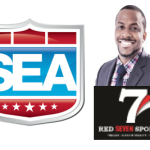
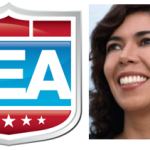
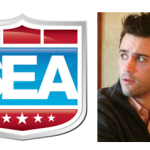
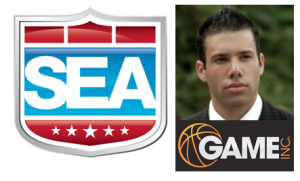
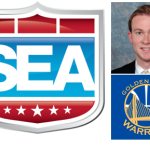
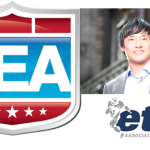
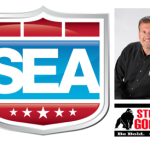

The cable is wound around the spool on the surface or on a portable spool at the back
of a wire line crane truck. Shake the jars when removing them to mix up
the grains. We begin then with a look at how geothermal energy
is used to generate electricity.
Now I am ready to do my breakfast, once having my breakfast coming over again to read additional
news.
I just couldn’t depart your website prior to suggesting that I actually loved the usual information an individual supply for your guests?
Is going to be back ceaselessly to check up on new posts
I’d like to find out more? I’d want to find out more
details.
When someone writes an piece of writing he/she keeps the plan of a
user in his/her mind that how a user can know it. So that’s why this article is outstdanding.
Thanks!
If you are going for most excellent contents
like I do, simply go to see this web site everyday since it gives feature contents, thanks
Really when someone doesn’t know then its up to other people that they will assist, so
here it occurs.
Hi,
I am writing to you to inform that the premium domain name “AmateurSponsor.COM” is being listed for sale.
It will help in driving organic traffic, improving SEO and company image and also is a great opportunity for you to acquire this premium asset and protect your brand while your company grows and prospers.
Please let me know if this interests you and I’ll send further details.
Regards,
John Scofield